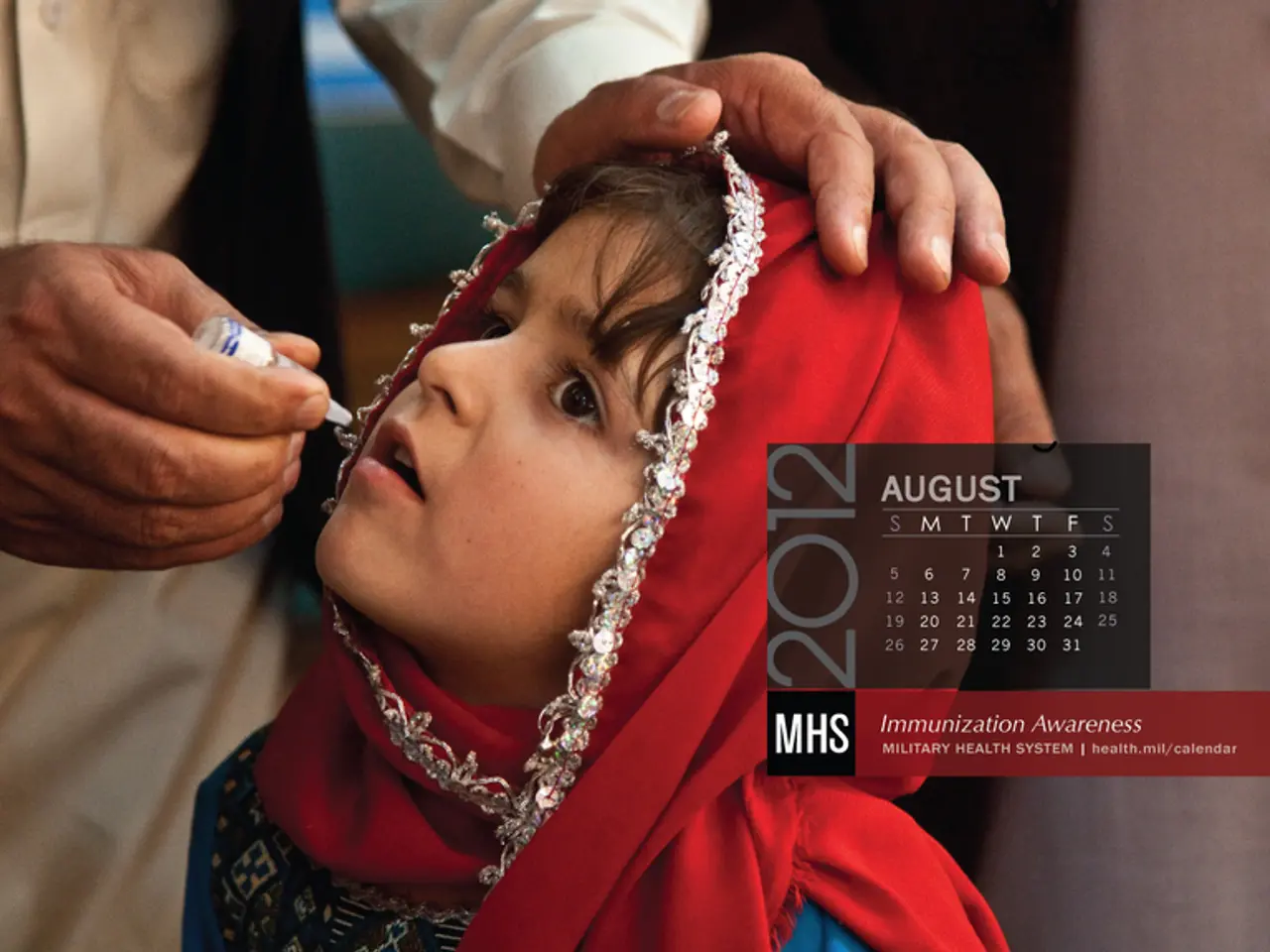Vaccine for Hepatitis B during Pregnancy: Key Facts to Understand
Protecting Babies from Hepatitis B: Understanding the Vaccine Schedule
Hepatitis B, a viral infection that attacks the liver, can have serious and potentially deadly consequences for newborns if left untreated. Fortunately, a safe and effective vaccine is available to protect infants against this disease.
The Recommended Hepatitis B Vaccine Schedule for Infants
The hepatitis B vaccine is typically administered in three doses:
- The first dose is given within 24 hours of birth, or within 12 hours if the mother is hepatitis B surface antigen (HBsAg) positive.
- The second dose is administered at 1–2 months of age.
- The third dose is given between 6–18 months of age.
For infants born to HBsAg positive mothers who weigh less than 2,000 grams, a four-dose schedule is recommended:
- Dose 1: at birth, with hepatitis B immune globulin (HBIG).
- Dose 2: 1 month.
- Dose 3: 2 months.
- Dose 4: 6 months.
The DTaP-IPV-Hib-HepB combination vaccine is commonly used for doses 2 and 3 of the primary series after the initial HepB birth dose.
Hepatitis B Vaccine for Pregnant Individuals
The hepatitis B vaccine is safe and effective for pregnant individuals. It consists of non-infectious subunits, reducing the expected risk to the fetus to negligible levels. While data on vaccine effects during pregnancy is limited, no harmful effects have been demonstrated.
Potential Side Effects
Common side effects in infants and others include dizziness, muscle pain (myalgia), and discomfort around the injection site. Rare side effects include lymphadenopathy (swollen lymph nodes), paresthesia (tingling), rash, urticaria (hives), arthralgia (joint pain), anaphylaxis, angioedema, and other allergic reactions. However, there is no evidence supporting the causation of chronic autoimmune diseases, such as chronic fatigue syndrome, multiple sclerosis, Guillain-Barré syndrome, or rheumatoid arthritis, by the vaccine.
The Importance of Hepatitis B Vaccination
All babies should receive the HBV vaccine to protect them against hepatitis B infection. The United States Preventive Services Taskforce recommends that every pregnant person who receives prenatal care should undergo screening for HBV. If a person did not receive the HBV vaccine as an infant, it is recommended for children and adolescents.
Pregnant people who develop HBV can pass the virus to their baby during or after birth. Without treatment, hepatitis B in babies can lead to severe and potentially deadly health complications. Treatments and vaccines can help prevent babies from having lifelong infections that could increase their risk for early death.
Vaccines to Avoid During Pregnancy
Doctors do not administer the human papillomavirus vaccine, measles, mumps, and rubella vaccine, live influenza vaccine, or varicella vaccine (for chickenpox) during pregnancy. The most common transmission method for babies is when a pregnant person who has hepatitis B passes the virus to the fetus during birth. Pregnant people should talk with their doctor about ways to protect themselves and their fetus from hepatitis B.
Safety and Efficacy of the Hepatitis B Vaccine
The hepatitis B vaccine is an inactivated virus, so the risk to the fetus is very low. There is no evidence of any risks from vaccinating against HBV during pregnancy or nursing. The American College of Obstetricians and Gynecologists recommends immunization for pregnant people. Healthcare professionals should administer further doses of these vaccines to the individual after birth if necessary.
In summary, the hepatitis B vaccine is a crucial tool in protecting infants and pregnant individuals from this potentially deadly disease. By following the recommended vaccine schedule and discussing any concerns with a healthcare provider, individuals can ensure they and their loved ones are protected against hepatitis B.
- Hepatitis B, a viral infection that can be harmful to newborns, is preventable through a safe and effective vaccine.
- The recommended hepatitis B vaccine schedule for infants consists of three doses: one at birth, one between 1-2 months, and another between 6-18 months.
- For infants born to HBsAg positive mothers who weigh less than 2,000 grams, a four-dose schedule is recommended.
- The DTaP-IPV-Hib-HepB combination vaccine is commonly used for the second and third doses of the primary series.
- The hepatitis B vaccine is also safe and effective for pregnant individuals as it contains non-infectious subunits, reducing the risk to the fetus to negligible levels.
- Common side effects from the hepatitis B vaccine include dizziness, muscle pain, and injection site discomfort, while rare side effects include swollen lymph nodes, tingling sensations, hives, joint pain, and allergic reactions.
- Without treatment, hepatitis B in babies can lead to severe health complications, but treatments and vaccines can help prevent lifelong infections.
- Pregnant people should avoid certain vaccines like the human papillomavirus vaccine, measles, mumps, and rubella vaccine, live influenza vaccine, and varicella vaccine, but they should discuss hepatitis B protection options with their healthcare provider.




